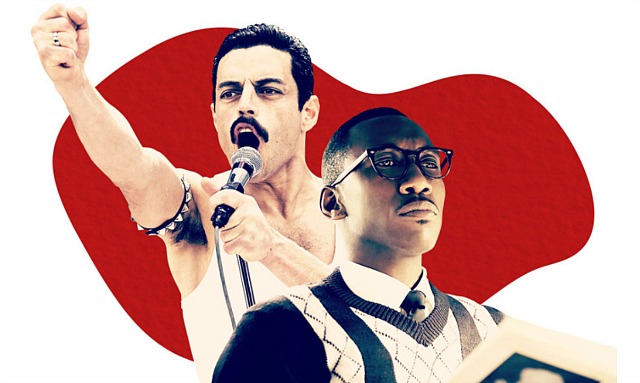Green Book and Bohemian Rhapsody are no longer just Best Picture contenders with soiled reputations and checkered histories. They are now, in the view of Vulture‘s Nate Jones, “Oscar villains.” Villains, mind you. Which means…what, up to no good, bad karma, twirly moustache movies who tie fair young maidens to the train tracks, and sure to be foiled by the hero?
What exactly is a movie villain as defined by the last eight or nine years? It’s a film that “usually debuts at one of the fall festivals, where it earns rave reviews from the mostly white commentariat,” Jones explains. “It gets good buzz throughout the fall, and debuts to largely positive reception, but also some side-eyes on social media over its racial or sexual politics.
“These rumblings are often crystallized in a widely shared piece of criticism, after which viewers are forced to divide themselves into three camps: those who take pride in dunking on the film, those who defend it from the legions of haters, and those in the middle who consider it, at best, a problematic fave.
“Awards prognosticators write stories about how this negative buzz is not having an impact on voters, a point seemingly proven when the movie performs well at the Golden Globes. The Globes success in turn ramps up the backlash, but the film seems to be skating toward Oscar success until — sometimes at the last possible moment — it loses Best Picture to a less-controversial competitor.”
That “less controversial competitor,” trust me, is Roma. Alfonso Cuaron‘s memory film has no marks against it, and serves as a stirring metaphor for Trump pushback against the wall and general yokel-hinterland racism. Plus the Golden Globe and Critics Choice wins have already supplied a strong headwind.













